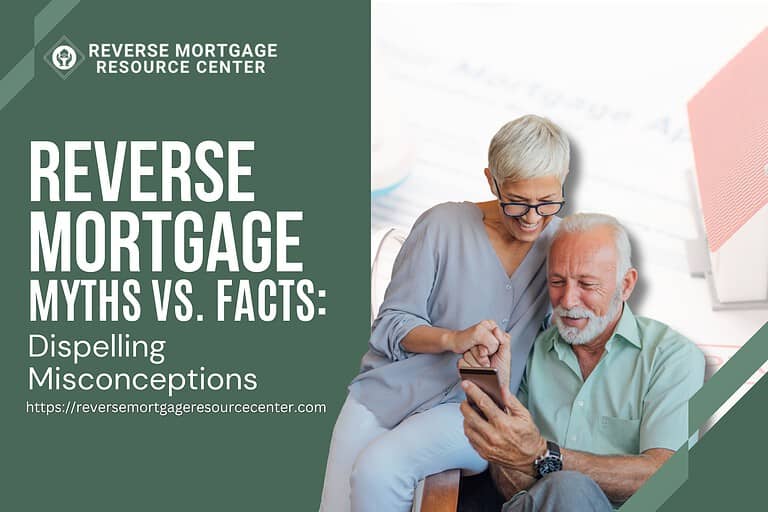The Benefits Of A Reverse Mortgage Loan For Aging Utah Homeowners
In an unexpected turn of events, Utah finds itself amid a scenario where an increasing percentage of older homeowners actively seek alternate financial routes to improve their retirement prospects. Reverse mortgage loans, which have acquired significant support due to their unique benefits suited to those aged 62 and above, are at the forefront of these options. In this article, we explore the benefits of this financial mechanism, particularly in the context of Utah residents. We hope to showcase reverse mortgage loans as a practical and reasonable solution for supplementing income during the cherished golden years by focusing on their possibilities.
A thorough knowledge of the benefits of reverse mortgage loans needs a fundamental comprehension of this credit arrangement’s underlying mechanics and implications. Our goal is to explain various financial and non-financial benefits that make reverse mortgages an enticing alternative for Utah’s elderly homeowners. Furthermore, before commencing this course of action, we will try to address the potential difficulties and issues. Finally, the importance of this research-driven investigation is not simply to inform but to empower aging individuals and allow them to make educated decisions about their financial future. We hope that by doing so, we can ensure they have a comfortable and peaceful retirement.
Understanding Reverse Mortgages
Exploring the complexities of reverse mortgages can yield valuable insights for older individuals who own property and seek financial security during retirement. The Home Equity Conversion Mortgage (HECM) is open to homeowners aged 62 and above, enabling them to convert a portion of their home equity into readily available funds while retaining property ownership. Designed primarily for seniors, this financial solution allows them to supplement income, manage medical expenses, settle existing debts, or enhance their quality of life in retirement.
One of the key advantages of reverse mortgages is the deferral of repayments until the homeowner sells the property, permanently relocates, or passes away. As a result, eligible borrowers can access their home equity without the obligation of monthly mortgage payments. Additionally, the Federal Housing Administration (FHA) backs HECMs, ensuring homeowners are shielded against potential lender defaults and guaranteed access to loan funds even if the property’s value declines over time. It’s important, however, for potential borrowers to consider the expenses of obtaining a reverse mortgage, including origination fees and interest rates.
The suitability of a reverse mortgage hinges on the homeowner’s financial circumstances and retirement objectives. For certain aging homeowners in Utah grappling with limited income choices or elevated living costs, utilizing home equity through a reverse mortgage may be an effective strategy to attain improved financial stability and autonomy during retirement. By comprehending the distinct attributes and prerequisites of this type of financial arrangement, older property owners can make well-informed choices regarding whether pursuing a reverse mortgage aligns with their enduring goals and requirements.
Financial Benefits for Aging Utah Homeowners
Reverse mortgages provide significant financial advantages to elderly Utah homeowners. For starters, the availability of different disbursement options increases flexibility based on individual needs and preferences. Homeowners can opt to receive fixed monthly installments for the rest of their lives (tenure), fixed monthly installments for a set period of time (term), a line of credit with variable interest rates based on market circumstances (line-of-credit), or a combination thereof.
It should be noted that HECM reverse mortgage loans are non-recourse loans, which means that borrowers will never owe more than the value of their properties when repayment is due. This further protects against market swings and assures that borrowers’ descendants do not inherit loan debt when the homeowner passes or sells the property. In essence, reverse mortgages provide financial freedom to aging Utah homeowners while allowing them to remain in their beloved houses throughout their retirement years.
Protecting Borrowers from Owing More than Home Value
A critical part of this financial strategy is preventing older people from accruing debt that exceeds the value of their property. One significant advantage of reverse mortgage loans for aging Utah homeowners is that they protect borrowers from ever owing more than the value of their homes. This security provision is made feasible by the non-recourse nature of these loans, which means that neither the borrower nor their successors may be held liable for any amount exceeding the appraised market value of the home at loan maturity. As a result, seniors who choose reverse mortgages can use the funds with confidence, without concern of burdening themselves or their loved ones with excessive debt.
Another benefit of this safeguard is its certainty regarding changes in housing markets and economic conditions over time. Reverse mortgage loans are designed to adjust to changes in property values, ensuring that external events beyond their control do not harm borrowers. For example, suppose a homeowner’s property value drops after receiving a reverse mortgage loan. In that case, they will still only owe up to the property’s current appraised market value when repayment is due. In contrast, if the home increases over time, any excess equity remaining after the loan sum is satisfied belongs to the homeowner or their heirs upon the sale of the property. This level of flexibility and stability not only promotes peace of mind among elderly Utah homeowners but also gives them more choices in planning for their future wants and ambitions without putting them under excessive financial hardship.
No Effect on Social Security or Medicare Benefits
Importantly, getting a reverse mortgage does not negatively impact an individual’s eligibility for key programs such as Social Security or Medicare, ensuring that seniors’ crucial support remains intact. The Internal Revenue Service (IRS) classifies reverse mortgage payments as loan proceeds rather than income. As a result, these contributions do not impact seniors’ financial condition when participating in government support programs.
This gives seniors an alternative source of income that does not interfere with their Social Security or Medicare benefits. This can be especially beneficial in maintaining a comfortable lifestyle during retirement while ensuring that basic medical needs are covered. Reverse mortgages also eliminate the need for monthly mortgage payments, allowing seniors to focus on other aspects of their lives rather than constantly worrying about housing bills.
Because of reverse mortgages, seniors can acquire a sense of mastery in managing their finances while retaining the safety net provided by government programs developed expressly for them by skillfully utilizing this financial tool.
Aging in Place and Maintaining Homeownership
Maintaining homeownership and aging in place can considerably improve older individuals’ well-being and financial stability. Individuals frequently choose to remain in familiar settings as they age rather than move to assisted living facilities or nursing homes. This preference stems mostly from an emotional link to their neighborhood, neighbors, and home surroundings that they may have acquired through time. Furthermore, aging in place allows seniors to keep a sense of autonomy and control over their lives, which leads to better mental health and a higher overall quality of life.
A reverse mortgage loan provides various advantages for aging Utah homeowners who want to remain in place while still owning their houses. Borrowers obtain access to additional loan proceeds by converting a portion of their home’s equity into tax-free funds without selling or evacuating the property. These funds can be used for various purposes, including covering medical bills, making necessary house changes for accessibility, and boosting retirement savings – all of which contribute to a comfortable existence in one’s golden years.
This loan option empowers seniors by offering financial support without burdening them with additional monthly payments or risking government benefits. It provides them with the tools needed not only to maintain independence but also to ensure long-term stability. As a result, aging Utah homeowners are encouraged to investigate the potential benefits of a reverse mortgage loan while evaluating tactics for ensuring personal fulfillment and financial security during their retirement years.
Considerations and Risks
Fees and closing charges associated with reverse mortgage loans can substantially impact the financial benefits of such a loan for aging Utah homeowners, thus, necessitating careful consideration. Furthermore, the ramifications for heirs and estate planning must be carefully explored since a reverse mortgage may limit or complicate estate distribution processes. Comprehensive counseling and research are required to ensure homeowners fully understand the hazards of reverse mortgage loans and make informed decisions about them.
Fees and Closing Costs
Understanding the fees and closing charges involved with financial agreements is unquestionably important for making informed decisions for long-term stability and peace of mind. Like other loan products, reverse mortgage loans have fees that Utah homeowners should know before entering into this unique financial arrangement. These costs can impact the overall effectiveness and benefits of a reverse mortgage loan. Therefore, they must be thoroughly analyzed.
- Origination fee: This cost pays the lender for the time it takes to process the reverse mortgage loan. It may vary depending on the property value or maximum claim amount.
- Appraisal fee: An appraiser will examine the worth of your house to determine how much can be borrowed through a reverse mortgage loan. Appraisal fees typically vary from $300 to $600.
- Closing costs: Reverse mortgage loans, like standard mortgages, involve closing costs such as title insurance, recording fees, and credit report charges ranging from 2% to 5% of the loan amount.
- Mortgage Insurance Premium (MIP): The Federal Housing Administration (FHA) mandates borrowers to pay an upfront MIP of 2% of the appraised value of their house or the maximum claim amount, whichever is less. Moreover, an annual MIP equal to 0.5% of the outstanding balance is imposed throughout the life of the loan.
Impact on Heirs and Estate Planning
Navigating the effects of reverse mortgage loans on heirs and estate planning is an important consideration for having a financially secure and harmonious retirement lifestyle.
When the last borrower of a reverse mortgage holder passes away, the heirs usually have six months to repay the loan sum or sell the home to pay off the obligation. If they decide to maintain the property, they must either refinance it into a regular mortgage or find another way to pay the remaining sum.
It is critical for aging Utah homeowners contemplating this option to discuss these potential consequences openly with their family members and incorporate them into their overall estate plans. Furthermore, seeking professional counsel from skilled financial planners or elder law attorneys helps guarantee that all required measures are taken when including reverse mortgages into a person’s overall retirement strategy.
Importance of Counseling and Research
Individuals considering incorporating this financial instrument into their retirement strategy must be aware of its various ramifications and possibilities. Before applying for a reverse mortgage loan, aging Utah homeowners must go through obligatory counseling with a HUD-approved counselor. This rule guarantees that prospective borrowers are well-informed on the benefits and drawbacks of reverse mortgages and other financial options. Furthermore, conducting independent research on the subject can assist homeowners in making informed decisions about whether a reverse mortgage is appropriate for their situation.
Individuals considering reverse mortgage loans should consider the following in addition to counseling sessions:
Compare various loan providers:
– Analyze the interest rates, fees, and conditions various lenders provide.
– Evaluate the reputations and levels of client satisfaction of potential providers.
– Think about working with local lenders experienced with the Utah home market.
Evaluate personal financial objectives:
– Determine whether a reverse mortgage corresponds with your short-term or long-term goals.
– Examine the effect of declining home equity on estate planning and inheritance.
– Think about how other sources of income (for example, Social Security benefits) can interact with loan proceeds.
Seek professional advice:
– Speak with trusted financial advisors or legal professionals knowledgeable in estate planning matters.
– Discuss potential tax implications associated with receiving loan proceeds.
– Learn about any potential impacts on government benefit programs such as Medicaid.
Aging Utah homeowners can learn whether incorporating a reverse mortgage loan into their retirement strategy will benefit their overall financial well-being by conducting extensive research and seeking expert guidance through counseling sessions. As a result, these activities significantly empower individuals to make educated decisions that promote long-term stability while meeting present demands in an ever-changing economic situation.
Frequently Asked Questions
What are the qualifications for a reverse mortgage loan in Utah?
Despite potential concerns about eligibility for reverse mortgage loans in Utah, completing the essential criteria is frequently more straightforward than expected. Applicants must be at least 62 years old, own their principal residence outright, or have a low mortgage balance that may be paid off with loan proceeds to qualify. Furthermore, they must inhabit the property as their primary residence, keep it in excellent repair, and pay property taxes and homeowners insurance on time. To ensure prospective borrowers fully understand the implications of this financial product, they must also attend a consumer information session delivered by an approved Housing and Urban Development (HUD) counselor. By meeting these standards, aged Utah homeowners can use reverse mortgage loans to improve their financial security throughout retirement.
How does a reverse mortgage loan impact the homeowner’s estate and inheritance for their beneficiaries?
The impact of a reverse mortgage loan on a homeowner’s estate and inheritance for beneficiaries is mainly determined by the remaining house equity when the loan matures. Following the borrower’s passing or permanent relocation, the heirs are responsible for repaying the loan debt, usually accomplished by selling the property or refinancing. Beneficiaries can get any surplus proceeds after repayment if their home equity is still substantial. However, if property values fall or borrowers exhaust their equity throughout their lifetime, the assets available for inheritance may be reduced. It is critical to realize that because reverse mortgages have a non-recourse clause, even if the loan total exceeds the property value at the time of repayment, heirs are not accountable for any shortfall; they simply surrender possession of the property to discharge outstanding debts.
Are there any specific tax implications for Utah homeowners who opt for a reverse mortgage loan?
The tax implications of reverse mortgage loans vary based on individual financial circumstances; nevertheless, the general agreement is that the Internal Revenue Service (IRS) does not consider reverse mortgage loan proceeds taxable income. This means that Utah homeowners who take out a reverse mortgage loan may not have to pay federal income taxes on the proceeds. Furthermore, these loans usually have no bearing on Medicare or Social Security benefits. Nonetheless, homeowners should contact a tax professional or financial counselor to understand their position better and ensure compliance with applicable state or local tax requirements.
What are the potential alternatives to a reverse mortgage loan for aging Utah homeowners who need financial assistance?
In terms of financial planning, aging homeowners frequently navigate a maze of possibilities to safeguard their future well-being. Several options reveal themselves as realistic avenues to financial security for Utah individuals seeking alternatives to reverse mortgage loans.
A home equity line of credit (HELOC) enables the borrower access to funds based on the worth of the house while keeping ownership and minimizing the loan origination fees associated with reverse mortgages. Another option is downsizing or relocating to a less expensive home, freeing up significant funds for other costs, investments, or long-term care needs. Furthermore, government programs such as Supplemental Security Income (SSI) and Medicaid may provide additional channels for assistance in meeting healthcare expenditures and basic necessities without depleting valuable home equity. Finally, each homeowner’s trip through this complicated environment necessitates careful analysis and personalized counsel from financial professionals to uncover the best answer for their specific circumstances.
How do interest rates and fees compare between reverse mortgage loans and traditional home equity loans in Utah?
Interest rates and costs for reverse mortgage loans and regular home equity loans in Utah vary depending on various factors, including the broader economic condition, loan types, and borrower criteria. Fixed or adjustable reverse mortgage interest rates are available, with flexible rates often being lower initially but subject to market changes. On the other hand, traditional home equity loans typically have fixed interest rates for a set length of time. Origination fees, appraisal costs, title insurance premiums, and other closing costs may be charged for both loan types. However, because the Federal Housing Administration (FHA) requires mortgage insurance payments, reverse mortgages usually have higher upfront fees. Prospective borrowers should properly assess their unique circumstances and consult with specialists before making any decisions to make an appropriate comparison between these two financial tools in Utah’s market conditions.
REVERSE MORTGAGE RESOURCE CENTER ~LIVE LIFE ON YOUR TERMS~
Our Lending Team has been serving our clients since 2004. We are passionate about serving our clients with integrity to help them achieve their financial goals.






